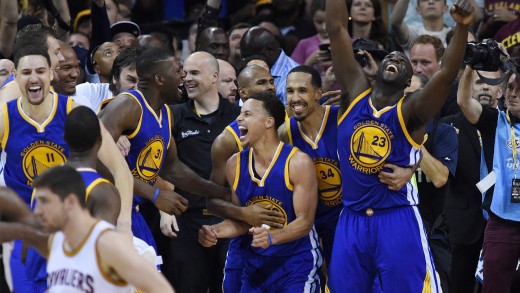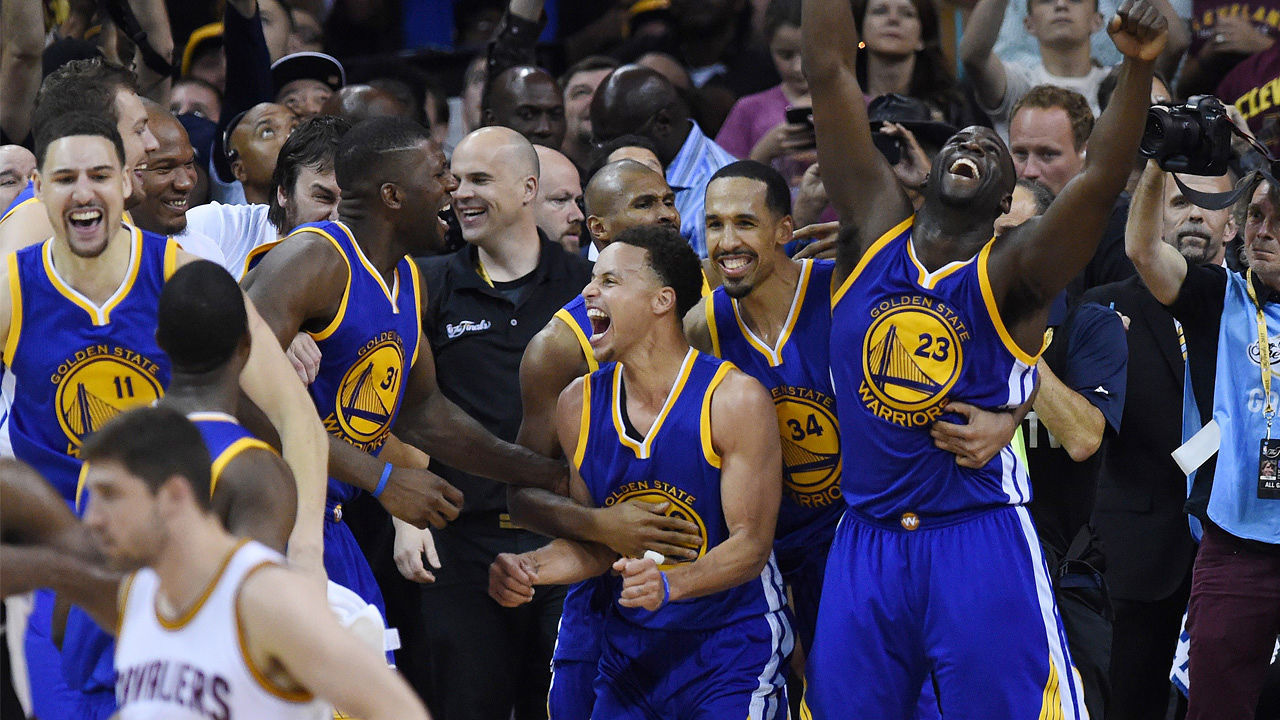NBA Champion Golden State Warriors Kick Off Their Title Defense in VR
Although not the first NBA team to dabble in VR (hello, Sacramento), the Warriors’ experiment could mean a big boost to Gear VR and others.
If you’re one of the countless pro basketball fans who can’t be on hand this evening for the NBA champion Golden State Warriors’ opening night game, don’t worry: There’s another way to get courtside.
The NBA, in partnership with Turner Sports, and the virtual reality technology company NextVR, is live-streaming tonight’s Warriors game against the New Orleans Pelicans in VR, and everyone is welcome.
Everyone, that is, with a Gear VR, Samsung’s virtual reality headset. Fans with that hardware will be able to watch the game, as well as the Warriors’ championship ring ceremony beforehand, via NextVR’s Gear VR app.
Fans will see the game via cameras “positioned strategically to capture all the live action, providing fans with a fully immersive experience as if they were watching from a courtside vantage point,” the NBA said in a release.
The league is calling the stream the “first live professional sports game in virtual reality” available to fans. The distinction is necessary as there have, to date, been other live VR streams of pro sports that have not been widely accessible. For example, NextVR live-streamed a soccer match between Manchester United and FC Barcelona in July. There’s also been previous use of VR in the NBA—the Sacramento Kings did a small test of a live VR stream of two pre-season games earlier this month and the league also previously recorded some game action, including from its All-Star game last season, but none of that was made available live.
The Warriors-Pelicans game comes a day ahead of the Kings’ own live VR stream on Wednesday night of their season opener, against the Los Angeles Clippers. That VR experience will be only be available inside the team’s arena, a school in India, and a women’s and children’s center in California.
The Kings are working with the VR technology company Voke on the production of their stream and the team hopes to differentiate its VR offering from that of the NBA’s presentation of the Warriors-Pelicans game by making it platform agnostic, meaning its should be available on any VR platform—such as Oculus Rift, Google Cardboard, or even YouTube 360 or Facebook 360 Video, as well as Gear VR.
“Around the world, there are fans who may never have the chance to be a part of the spectacle of NBA basketball,” Kings owner Vivek Ranadive said in a statement provided exclusively to Fast Company. With VR, “we can share the in-arena excitement in an unprecedented way. Through technology, we’ll connect with emerging fans, find new ones, and provide a truly unique experience.”
The NBA is the latest large, public-facing institution to make it clear its want to be seen as an early adopter of VR technology, which for the most part still hasn’t made its way into consumers’ hands. Other large-scale operations, such as 20th Century Fox—which is making about 100 of its legacy films available to Gear VR users—as well as the Democratic Party, which had its first presidential debate live-streamed earlier this month, are also on board.
These are notable steps forward for the technology, given that hardware like the Oculus Rift, HTC’s Vive, and Sony’s PlayStation VR, will only be released commercially next year. For now, the only way most people can watch VR experiences is with the Gear VR or Google Cardboard. The technology is expected to generate as much as $30 billion annually worldwide by 2020, according to data from Digi-Capital.
What’s probably beneficial for the future prospects of the technology is that these early attempts by players like the NBA be used to figure out what works and what doesn’t. No one, for example, really knows yet the optimal way to live-stream a basketball game in VR. Most people would likely agree that there’s still much work to do on getting it right, but without studying experiments like tonight’s Warriors-Pelicans game, or, say, the Democratic debate, producers won’t know how to give viewers the best VR experience when higher-profile events hit, like the NBA Finals or the 2016 general election presidential debates. So stay tuned.
Fast Company , Read Full Story
(113)



